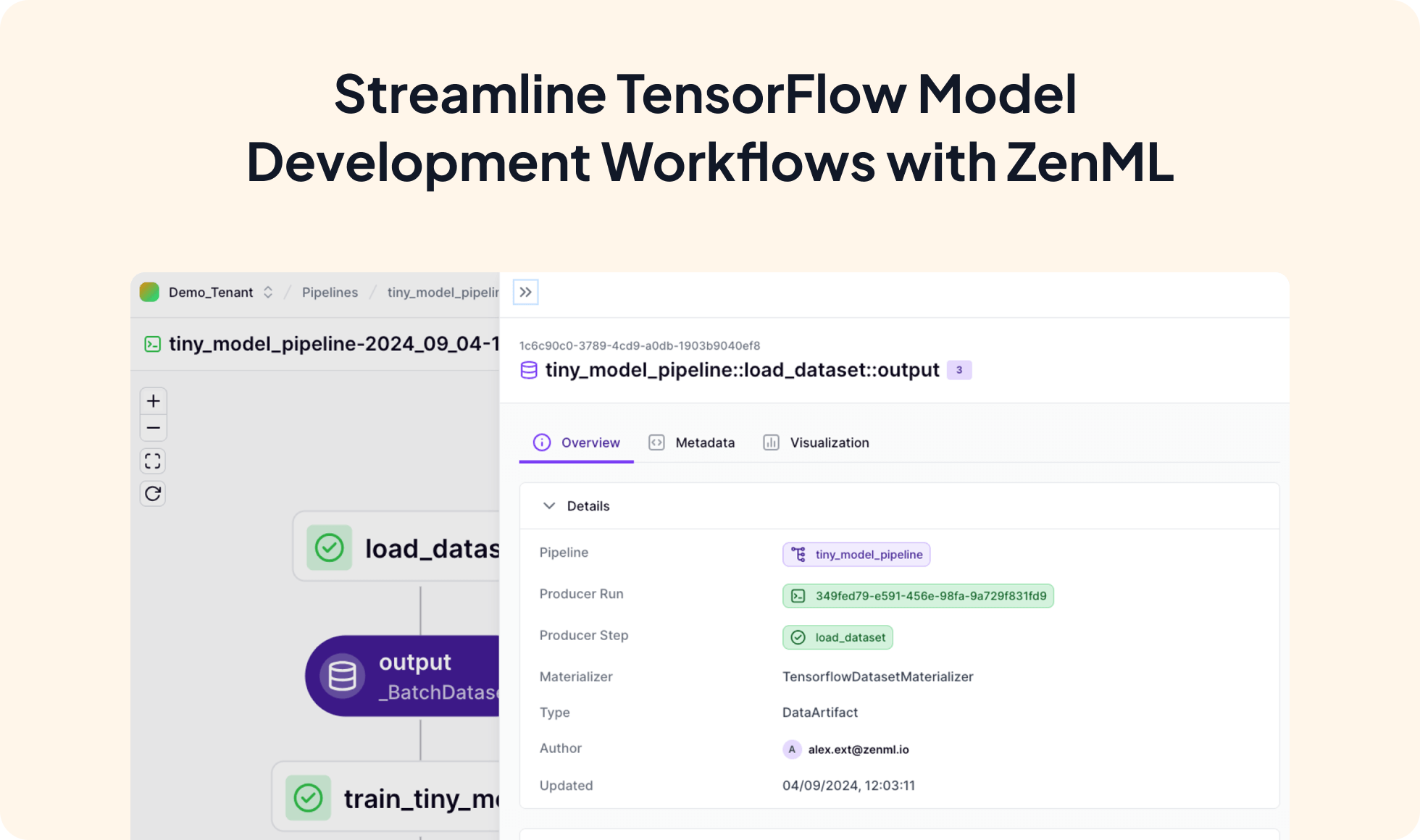Accelerate TensorFlow Model Development with ZenML
Seamlessly integrate TensorFlow into your ZenML pipelines for efficient and scalable model development. Leverage TensorFlow's powerful machine learning capabilities within ZenML's structured MLOps framework to streamline your end-to-end ML workflow.
Features with ZenML
- Streamlined TensorFlow Model Training
Effortlessly incorporate TensorFlow training steps into your ZenML pipelines for a seamless model development experience. - Scalable Machine Learning Workflows
Leverage ZenML's distributed computing capabilities to scale your TensorFlow training pipelines across multiple nodes and GPUs. - Reproducible and Versioned Models
Ensure reproducibility and traceability of your TensorFlow models with ZenML's built-in versioning and artifact tracking features. - Simplified Model Deployment
Seamlessly deploy your trained TensorFlow models using ZenML's deployment integrations, enabling rapid model serving and inference.

Main Features
- Comprehensive machine learning framework
- Supports wide range of model architectures and algorithms
- Efficient training on CPUs, GPUs, and TPUs
- Extensive ecosystem of tools and libraries
- Strong community support and resources
How to use ZenML with
TensorFlow
import tensorflow as tf
from zenml import step, pipeline
@step
def load_dataset() -> tf.data.Dataset:
"""Step that loads and returns a tf.data.Dataset."""
# For this example, we'll create a simple dataset
x = tf.random.normal((100, 5))
y = tf.random.uniform((100,), maxval=2, dtype=tf.int32)
dataset = tf.data.Dataset.from_tensor_slices((x, y))
return dataset.batch(32)
@step
def train_tiny_model(dataset: tf.data.Dataset) -> tf.keras.Model:
"""Step that trains a tiny model using the input dataset."""
model = tf.keras.Sequential([
tf.keras.layers.Dense(10, activation='relu', input_shape=(5,)),
tf.keras.layers.Dense(1, activation='sigmoid')
])
model.compile(optimizer='adam', loss='binary_crossentropy', metrics=['accuracy'])
# Train for just one epoch
model.fit(dataset, epochs=1)
return model
@pipeline(enable_cache=False)
def tiny_model_pipeline():
dataset = load_dataset()
model = train_tiny_model(dataset)
tiny_model_pipeline()
This code defines a simple ZenML pipeline that creates a small dataset using TensorFlow, trains a tiny neural network model on that dataset for one epoch, and returns the trained model. The pipeline consists of two steps: load_dataset() which generates a random dataset, and train_tiny_model() which defines and trains a small sequential model using the dataset. Finally, the tiny_model_pipeline() function orchestrates the pipeline by executing the steps in order and returning the trained model.
Additional Resources
Blog: "The Road to Zen: getting started with pipelines” (from FuzzyLabs) — includes an example of using TensorFlow with ZenML
TensorFlow Official Website
TensorFlow Python SDK documentation



